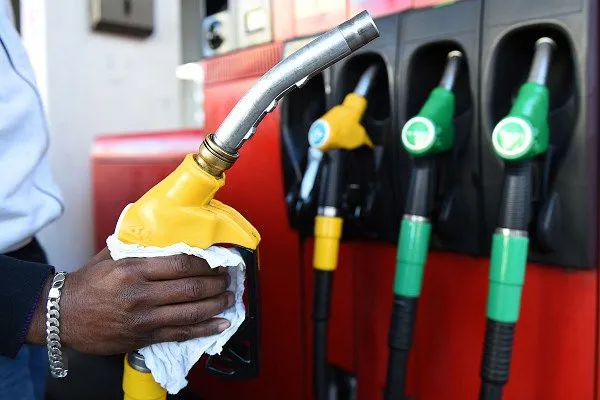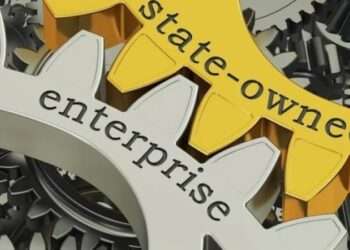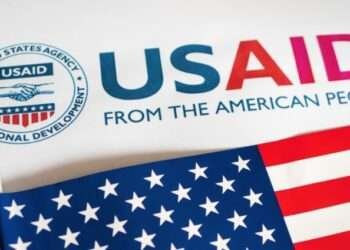The government of Ghana has directed the National Petroleum Authority (NPA) to temporarily suspend the implementation of the Price Stabilization and Recovery Levy (PSRL) on petroleum products. This suspension is effective from Monday, April 1, to June 30, 2024.
The NPA communicated this suspension to players in the oil marketing and distribution sector through a letter, noting that the decision was made by the Finance and Energy ministries.
“The Ministry of Finance through the Energy Ministry has directed the National Petroleum Authority (NPA) to remove the price stabilization and recovery levy (PSRL) from price build under section 2(b) of the Energy Sector Recovery Levies Act 2015(Act 899) amended 2021 Act 1064 for three months.”
Curtis Perry Kwabla Okudzto, Deputy Chief Executive, NPA
The suspension of the levy, which was previously charged on petroleum products and LPG, is expected to reduce the price of petrol by 16 pesewas, diesel by 14 pesewas, and LPG by 14 pesewas per kilogram. This action is aimed at cushioning consumers from rising global market prices, which led to earlier projections of increasing prices for petroleum products from April 1, 2024.
The PSRL rates were previously set at 16.00 GHp/Lt for petrol, 14.00 GHp/Lt for diesel, and 14.00 GHp/Kg for LPG, effective from March 16, 2024. However, these levies will be reduced to nil for all fuel products as of April 1, 2024. The government’s intervention is part of its efforts to shield consumers from the burden of high fuel costs resulting from escalating global prices. By temporarily removing the PSRL, the government seeks to alleviate the financial strain on consumers at the pumps.
The Energy Sector Levies Act 2015 (Act 899) allowed the NPA to stabilize petroleum product prices for consumers over a certain period. The PSRL was intended to cushion consumers from petroleum products when prices on the international market drop, keeping prices stable. Despite the suspension, the government intends to insulate customers from paying for higher fuel prices at the pumps based on rising prices on the global market.
The Price Stabilization and Recovery Levy (PSRL) is a tax imposed on petroleum products in Ghana, established under the Energy Sector Levies Act, 2015 (Act 899). Its primary purpose is to serve as a buffer for recoveries in the petroleum sector, aiming to stabilize petroleum product prices for consumers.
The levy was initially set at GHp12 per liter on petrol, GHp10 per liter on diesel, and GHp10 per kilogram on LPG, effective from 2016. However, it was adjusted upwards in 2019 to GHp16 per liter on petrol, GHp14 per liter on diesel, and GHp14 per kilogram on LPG, with these adjustments taking effect in 2020.
The PSRL works by adding a fixed amount to the price of petroleum products at the pump. This mechanism is designed to protect consumers from fluctuations in global petroleum prices and the volatility of the cedi against the dollar. The levy is collected from consumers and deposited into the Price Stabilization and Recovery Account, which is then used to subsidize the cost of petroleum products.
According to the Africa Centre for Energy Policy (ACEP), between 2016 and a half year of 2021, the PSRL raised about GHS2.53 billion, with an estimated GHS948 million spent on subsidies, leaving about GHS1.58 billion as the balance of the account. This indicates that the levy has not been used to stabilize prices since its inception in 2015, as the funds have been primarily allocated to subsidies.
The price of petroleum products in Ghana is influenced by several factors, including global crude oil prices, the foreign exchange rate, and the taxes and levies imposed on petroleum products. The PSRL is part of the government’s efforts to manage these variables and ensure that consumers are not disproportionately affected by price increases. However, the effectiveness of the PSRL in stabilizing prices has been questioned, with some arguing that it has not been used for its intended purpose and suggesting that the government should consider other measures to cushion consumers from high fuel prices.
All Oil Marketing Companies (OMCs) and LPG Marketing Companies (LPGMCs) are urged to implement these revised PSRL rates in their Price Build-Up from April 1 to June 30, 2024, ensuring transparency and compliance with the government’s directive. Consumers are advised to take note of these changes and adjust their expectations accordingly.
READ ALSO: OPEC Maintains Optimistic Outlook for Oil Demand Amid Economic Growth





















